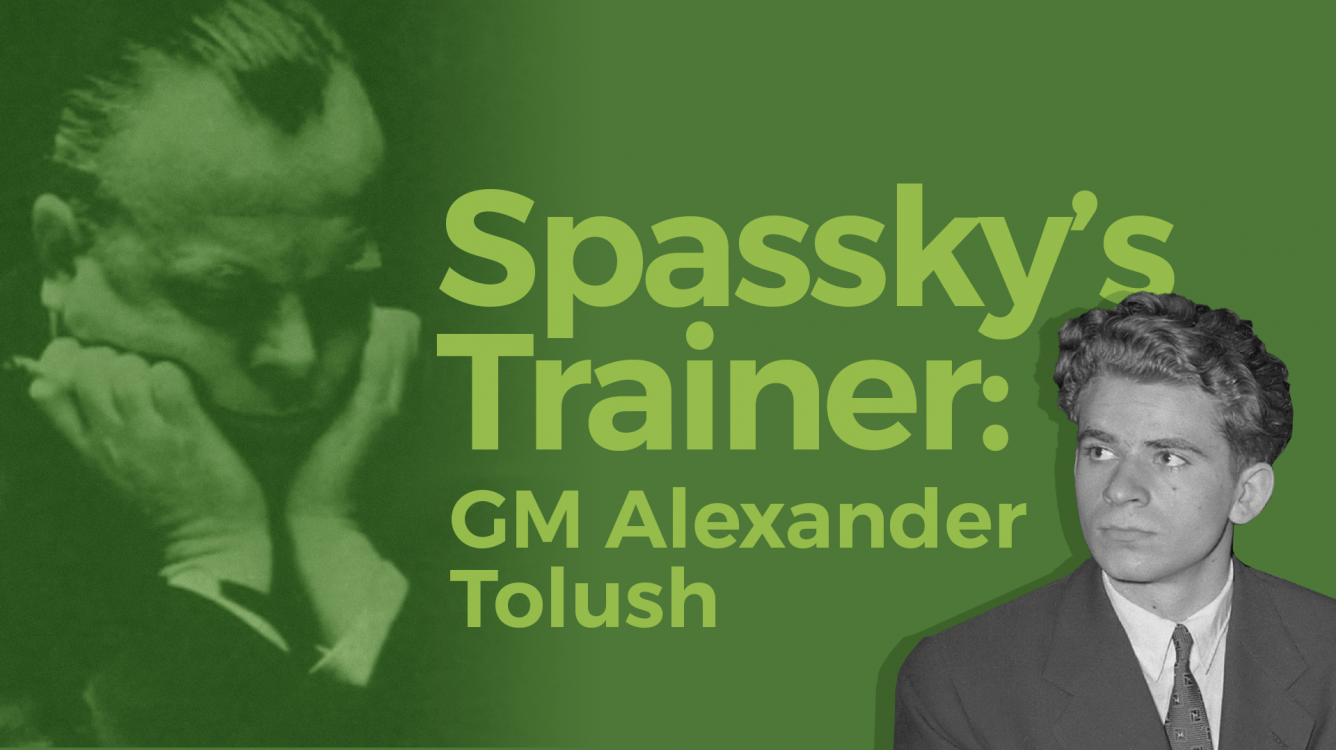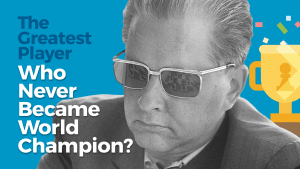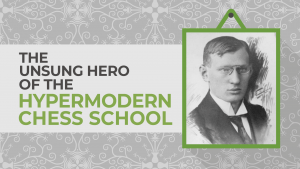
Spassky's Trainer: GM Alexander Tolush
It never ceases to amaze me how a player of the magnitude of GM Alexander Tolush can be so often glossed over, especially when one considers not only his innate ability and bold compelling style as a chess player but also his profound effect as a teacher. In this case, I refer specifically to his mentoring of not one but two of the most important players in chess history: GMs Boris Spassky and Paul Keres.
In addition, when we consider his bold attacking style, his dazzling combinations, his precision, and certainly his impact on both Spassky and Keres, we need to celebrate Tolush's significant career and contributions.
He was one of three mentors in young Boris' life. Tolush's influence both stylistically and as a mentor had everything to do with contributing to Spassky's success and helping the young Boris forge his own style.

Spassky is now known as a universal player. However, the dominant brush stroke that runs down the canvas that reflects Spassky's chess identity is that of a bold, attacking player, much like his first trainer, Tolush.
Grandmaster Mikhail Yudovitch, a Soviet contemporary of Tolush, said: "Playing against Tolush was very interesting, but also difficult. He was a chess master who could create surprises that changed the character of the fight sharply. Alexander Tolush won and lost beautifully because he fought to the last pawn. In difficult positions, he was able to find hidden traps and made things difficult for his opponent."
Tolush had an auspicious start defeating the iconic Jose Raul Capablanca in a simul in Leningrad in 1935. Here is the game, a wonderful example of his style:
A few years later he handed the young and future world champion, GM Vasily Smyslov, this resounding defeat in 24 moves—and with the black pieces no less:
Tolush was born on May 1, 1910, in Saint Petersburg, Russia. He spent nearly all of his life, with the exception of his service to his country in World War II, in that city. He worked as a chess journalist and radio commentator, and he took part and won the Leningrad City Championship three times between 1938 and 1947. He also finished second to his protege Keres in the U.S.S.R. championship in 1954.
Tolush's greatest success was his victory at Bucharest in 1953, winning 10 games with eight draws. He lost to only Smyslov, who was not only at the height of his powers but, according to both GM Mikhail Botvinnik and GM Garry Kasparov, the greatest player in the world during that decade of the '50s.

That tournament also had two other future world champions—Tigran Petrosian and Boris Spassky—as well as Issac Boleslavsky, who has had a tremendous influence on theory, especially openings. Another participant was the gifted Hungarian Laszlo Szabo, who throughout his career was constantly at the top of nearly every tournament he participated in.
As a result of his success in this tournament, Tolush was granted the grandmaster title. He was also invited twice to join the Soviet national team, which won the European Team Championship in Baden Baden in 1957 and in Oberhausen in 1961.
This 17-move miniature was against Vladimir Alatortsev, who finished second to Botvinnik in the U.S.S.R. championship of 1933. Tolush could literally strike like lightning, as the following game demonstrates:
By most accounts, Tolush was a fiery and passionate man. He often declared, "Onward, Kazimirich!" when in a precarious position over the board. But he was also a difficult man. He was an officer in a tank division during World War II and like most Russians saw some of the worst fighting of the war.

This undoubtedly had a dramatic effect on him, as it did on so many others who survived the war. As a result, he became an alcoholic, known for drinking copious amounts of vodka. This is generally acknowledged as being a contributing factor to his lack of consistency, so necessary to get through the challenging elimination cycles.
Spassky thought that Tolush's alcoholism could often cause him to be quite irritable, blunt, brusque, and even brutal. However, Boris had great respect for Tolush who taught Spassky his fearsome attacking style.
Spassky remarked: "Tolush was very involved with chess. He was a brilliant attacking player who loved to sacrifice pieces, and he helped me very much.... When I first met him in the 1950s, I had a great desire to work with him, and I changed my style because he was a bold, attacking player."
The arrangement worked out quite well for a while. In fact, Spassky went to his first international tournament with Tolush. The event, the Bucharest tournament of 1953, was the most noteworthy of Tolush's success.
Tolush was to some extent the mentor Boris needed as he explains: "He continued as my trainer from 1952 to 1960. It became hard for me because I didn't find a good personal contact with Tolush. He was a very brutal man who loved giving advice to me.... It was terrible."
Boris, mimicking Tolush, also said: "I don't like that position, I've always tried to teach you, but you are a very stupid boy. You make mistakes here, there. You must think, watch your step."

Unfortunately, Tolush never lived to see his protege win the world title from Petrosian in 1969.
Part of his legacy was the introduction of the "Tolush-Geller" Gambit of the Slav Defense, featured specifically in the U.S.S.R. championship of 1947 against Smyslov and again against Levenfish at the Leningrad championship that same year.
This brilliant attacking player, teacher, trainer, and mentor passed away in Leningrad on March 3, 1969. Tolush's wife, Valentina, later in 1983 complied a biography and collection of her husband's games, 92 to be exact!
Check out Kevin Murphy's other articles on other chess masters!



